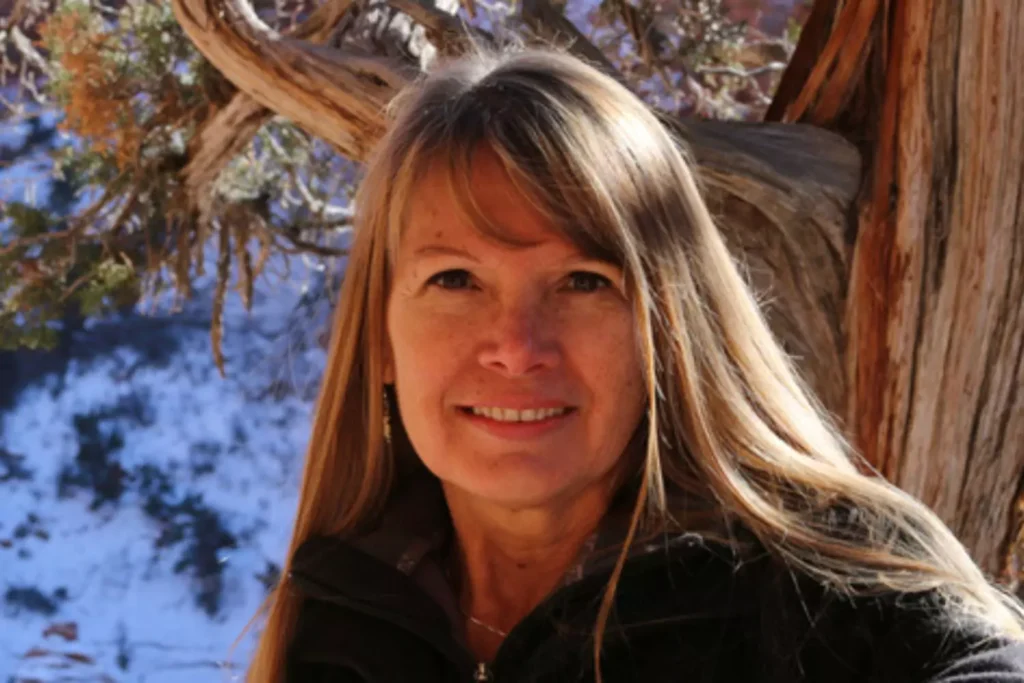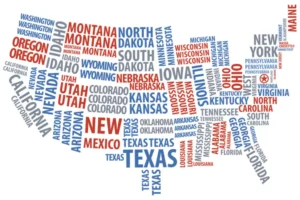At one point, Dr. Lynn Wilder was a confident, Mormon professor at Brigham Young University who had special privileges to enter all Mormon temples and even served in a Mormon temple for 10 years. She has since renounced her former faith.
Lynn’s discomfort with Mormon doctrine began to grow when she tried to teach students about the importance of diversity, but they correctly referred her to Mormon scriptures that described dark skin as a curse. Around this time, her son Micah called home from his two-year Latter Day Saints (LDS) mission trip and said that church leaders were threatening to ex-communicate him. He had read the Bible on his own, embraced biblical Christianity, and announced it during his parting testimony. This not only prompted his leaders to accuse him of being filled with the spirit of Satan; it prompted his family to reread the New Testament with fresh eyes.
As a result, Lynn; her children; and her husband, Michael, eventually left LDS. She and Michael started a ministry to former Mormons and have written two books, Unveiling Grace: The Story of How We Found Our Way Out of the Mormon Church and Seven Reasons We Left Mormonism.
Lynn took the time to talk with us about things like the difference between Mormonism and Christianity, why Mormons are so nice, and what goes on in temple rituals.
1. Some folks think Mormonism is just a slight variation from orthodox Christianity. Can you briefly describe three central ways that Mormon beliefs are different from orthodox Christianity?
When I read the New Testament, I discovered that Mormonism departs radically from biblical Christianity. My top three stark differences are:
Grace vs. works. Mormonism teaches the only way to eternal life with our heavenly Father is to join Mormonism and faithfully attend Mormon temples. Temple-worthiness requires good works: live a health code, attend church, tithe, profess faith in Joseph Smith and modern-day prophets and apostles, stay away from apostates, wear the authorized priesthood temple garments, and marry a worthy Mormon in the temple. But the Bible says we are saved by God’s grace alone because we have faith in Jesus — period (Ephesians 2:8-9). There is nothing we can do to add to what Jesus did on the cross.
Nature of God. The Mormon godhead is neither omniscient, omnipresent, nor omnipotent. Unlike the biblical teaching of the Trinity, the three members of the Mormon godhead are separate gods. Not only that, Father God and Jesus are seen as men who earned their way to godhood and are limited in their ability to know all things, be in all places at once, and to hear and answer prayers. Worthy Mormon priesthood holders can eventually work their way to godhood in the next life, rule their own worlds, and populate them with spirit children born of at least one wife. Therefore, there are possibly millions of Mormon gods. This is not the one true God of Bible-believing Christians.
Biblical reliability. Mormons have four standard works of scripture. Three of the four are distinctly Mormon and were birthed by the founding Mormon prophet, Joseph Smith. The Bible is only one of the four, and they teach that it is unreliably translated. To Mormons, Joseph Smith’s scriptures are “pure truth” and “utterly reliable.” But Orthodox Christianity heralds the Bible as the infallible Word of God.
2. If there’s one thing you hear about Mormons from almost everyone — regardless of their religious affiliation — it’s that “they’re just so nice.” How do Mormons maintain such a wholesome culture?
As a Mormon, I judged whether I was “Christian” by how nice or “Christ-like” others saw me act. “Christian” was synonymous with good behavior and outside appearance, not a state of being saved or professing biblical truth. Of course I wanted to look clean, attractive, intelligent, polite, friendly, and considerate to others so that others would be drawn to “the only true church.” As a result of this kind of thinking, the Mormon culture is decidedly wholesome in appearance. However, the Bible offers stern warnings about judging by appearance (John 7:24, 2 Corinthians 10:7).
3. Have you maintained any of your friendships with Mormons you knew before leaving Mormonism?
Mostly on social media, I have casual contact with former Mormon friends, but not typically any close personal relationships. Some contact me to say they have seen this or that interview, and they are not happy with me. Temple-worthy Mormons are not supposed to associate with anyone whose teachings run contrary to LDS Church teachings. It’s one of the worthiness questions to receive the temple-recommend needed to “earn” eternal life with Heavenly Father. Doing so can place the temple-recommend and eternal life with Heavenly Father in jeopardy.
Quite frankly, the loss of 30 years of friends was really tough on me at first. But God is good, and He eventually, over several years, replaced those friendships a hundredfold with amazing Bible-studying, God-worshipping, praying friends in the body of Christ all around the world through our ministry.
4. My Mormon friends won’t discuss what goes on in temple rituals, and in fact, I’ve found that any discussion of the temple usually goes nowhere. Why is that?
Mormons say their temple ordinances are “sacred, not secret.” But truly, how many folks on the street know what goes on in there? Although secret, LDS temple clothing, ordinances, and covenants can be found on the Internet.
What goes on in temples? First, one receives the instruction said to be necessary for resurrection and to pass through the veil to the celestial kingdom (the highest Mormon heaven) where one can live with Heavenly Father. Once one has received their own baptism, the gift of the Holy Ghost, washings, anointings, endowment, and temple sealing, they do the same ordinances in proxy for someone who is dead each time they return to the temple. Mormons believe they cannot be saved without saving their dead ancestors, hence the Mormon-based website Ancestry.com and all the genealogy and temple work I did.
5. What would you say to a Mormon who says they feel sorry for you because you’ve been deceived by Satan into pushing people away from the true gospel?
We urge anyone to read the Bible and to ask God to show them truth. What can it hurt? Read the book Unveiling Grace. Then talk with us. We are never offended by pity or honest dialogue. We once thought the same way. Why fear discovering something contrary to what you now believe? God invites us to reason together in the area of faith (Isaiah 1:18). With our family, the Holy Spirit worked saliently through the Word of God. God himself promises His Word will not return void but accomplish what He sent it out to do (Isaiah 55:11).
My son Micah was saved when he read the Bible and the Holy Spirit convicted him — even on his Mormon mission! He had no access to Christians whom he could question. Micah’s older brother, Matt, read the Bible with the same result. Their sister, Katie, read the Bible; the Spirit did the same. Then I read the Bible, and the Holy Spirit convicted me and saved me. And finally my husband, Mike, (he was holding tightly onto his LDS priesthood) surrendered his life to the God of grace. Life on this side is nothing less than extraordinary. Our peace is at stake, and the answer is simple: Jesus. No one can add to what Christ did on the cross.
***
To learn more about Lynn’s journey of faith, go to this website or read Unveiling Grace: The Story of How We Found Our Way Out of the Mormon Church and Seven Reasons We Left Mormonism.
Copyright 2015 Joshua Rogers. All rights reserved.











